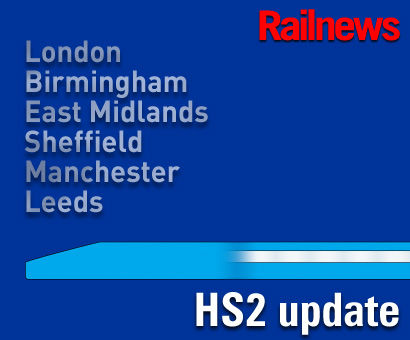THE final report from the Parliamentary Committee which has been considering the Hybrid Bill authorising Phase 1 of HS2 has 'failed to deliver', according to critics.
The Committee heard nearly 1,600 petitions against the Bill, and its final recommendations include a longer Chilterns bored tunnel with a north portal at South Heath, greater noise protection for Wendover and amendments to the discretionary compensation schemes.
The Committee is also calling for a remodelled maintenance depot at Washwood Heath in Birmingham to make the most of local job opportunities and better construction arrangements at Hillingdon in west London.
The purpose of the Committee was to hear objections to particular provisions, but not to consider opposition to the Bill in principle.
The Committee was chaired by MP Robert Syms, who said: "With this report on Phase One of the High Speed Rail programme, we have endeavoured to add substantial environmental, social and design benefits to the scheme, in balance with good use of public money and a viable engineering design."
The conclusions have also been welcomed in Whitehall. Transport minister Robert Goodwill said: "We will consider carefully the recommendations in the report and respond shortly. I also recognise the demands this process has placed on petitioners. We have listened to those affected by the scheme and in many cases we have been able to make the changes they have been calling for. I am happy to say that HS2 remains firmly on schedule, and today’s report marks another significant step towards getting spades in the ground for this transformational project."
The main criticism so far has come from promoters of alternative proposals, rather than the scheme's traditional opponents.
One promoter, Lord Tony Berkeley, who backs the 'Euston Express' concept and also chairs the Rail Freight Group, commented: "Euston Express is disappointed that the Commons Select committee chose to ignore the inaccurate evidence given by HS2 about our Euston Express scheme. E Ex puts all HS2 and West Coast Main Line trains on to the WCML tracks from Queens Park inwards and avoids the high cost, massive disruption and demolition to streets to the west of the line and at Euston itself. Euston Express, supported by a number of rail professionals, believes that the existing station can be adapted to accommodate all these trains without taking additional land."
The Rail Freight Group itself has expressed doubts about the implications for freight in the wake of the report, arguing that 'HS2 and Government have displayed a lack of ambition and urgency in confirming that use of released capacity on the West Coast Main Line would benefit rail freight'.
RFG executive director Maggie Simpson said: “HS2 is a vital project for rail freight growth but if we are to deliver the expected benefits for the sector, and the UK economy, we need clarity now on how released capacity will be used. We look forward to progressing discussions with HS2 and Government over coming months to ensure that a suitable framework is established giving the necessary confidence to the sector to support future investment.”
The report has also received a bleak reception from HSUK, which has suggested an alternative route for a high speed line north of London mainly following motorway corridors and providing a slightly lower maximum speed of 360km/h rather than the 400km/h of HS2. The group condemned the report from the Bill Committee because it had 'failed to deliver'.
A spokesman for the group said: “It beggars belief that this committee, chaired incidentally by a Poole MP who has no dog in this fight, can blithely nod through a scheme that will have devastating effect on the English countryside and whose top speed is pure fantasy.
“We note it is buried within the report that Euston station and Camden alone will face 17 years of disruption. We doubt very much if many Camden residents are desperate to rush to the north of England by High Speed train.
“A ten-year-old with a Hornby trainset knows that these high speeds demand exacting track sophistication and that the costs rise exponentially as the proposed speeds rise. To be blunt even if HS2 ever gets built, the costs involved in delivering these high speeds would be prohibitive – not that the current government will be concerned, as they will be long gone.
“The other stunning failure in logic, and we lay this firmly at Chancellor George Osborne’s door, is that instead of delivering businesspeople from London to the North to revitalise these economies, the opposite will happen. Northern business would simply come to London thus inflating that economy even further and creating ever larger regional discrepancies.”
Meanwhile, an event is being held in Westminster today as part of the campaign by the City of Liverpool to be connected to HS2 by a 32km extension. Key figures at this event include National Infrastructure Commission chair Lord Adonis, the mayor of Liverpool Joe Anderson and chair of the Transport Select Committee Louise Ellman.
With the HS2 Hybrid Bill at the end of its Committee stage, it will now return to the Commons before being sent on to a Public Bill Committee. The Report Stage and the Third Reading will follow.


